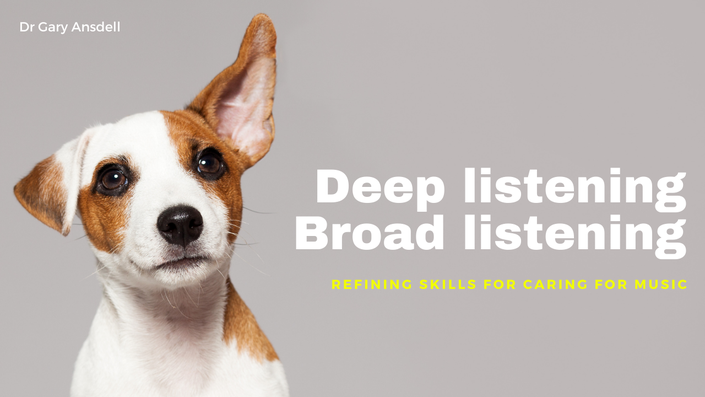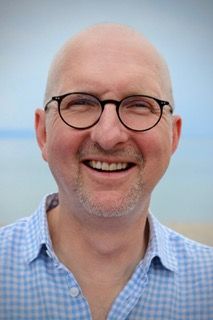
Deep and Broad Listening in Music Therapy: Enhancing Clinical Awareness Through Micro-Analysis
As music therapists, much of our work is shaped not just by what we play—but by how we listen.
In this insightful tutorial, Professor Gary Ansdell, a Nordoff-Robbins trained music therapist and internationally recognised researcher, invites you to slow down, listen deeply, and attune more closely to both the musical and extra-musical dimensions of your sessions.
Drawing on decades of clinical practice and micro-analytical research, Gary explores the powerful role of listening—as a clinical skill, a reflective tool, and a means of accessing more nuanced therapeutic insight. He introduces the concepts of deep listening (focusing on the subtle musical exchanges between therapist and client) and broad listening (attending to the context, behaviours, and unspoken elements that surround the music).
This tutorial will help you:
- Develop greater awareness of your own musical contributions and patterns
- Tune into the musical decisions and expressions of your clients with more clarity
- Recognise what may be missed in the fast pace of live sessions
- Explore practical ways to index, record, and analyse sessions for reflection and learning
- Apply the principles of micro-analysis even if you're not Nordoff-Robbins trained
Acknowledging that time and training can be barriers, Gary offers adaptable strategies to bring deeper listening into any clinical context—whether you're working in improvisation, songwriting, or receptive modalities.
With examples, reflections, and practical tools, this tutorial is designed to enhance your clinical sensitivity, support reflexive practice, and ultimately strengthen your client outcomes.
Bonus activities and curated resources are included to extend your learning and offer opportunities to earn CMTE/CPD credits.
Your Instructor

Gary Ansdell has been a music therapist for thirty years, working mostly in the area of adult mental health and later-life care settings. He has been involved in a wide range of areas of music therapy practice, and in developing the Community Music Therapy movement. Gary has also been active in training and research, developing new Masters and PhD programmes for Nordoff Robbins, where he was Director of Education (2008-2015). He has published widely in the areas of music therapy and music and health and is author/co-author of seven books on music therapy, the latest of which include 'How Music Helps: In Music Therapy and Everyday Life' (2014) and with Tia DeNora 'Musical Pathways in Recovery: Community Music Therapy & Mental Wellbeing' (2016). His longterm collaboration with the music sociologist Tia DeNora has led to their joint editorship of the book series Music and Change and to their current involvement (with colleagues at Bergen University) on the project 'Care for Music: an ethnography of music in later life and end of life settings' - a major grant award from the UK Arts & Humanities Research Council: https://careformusic.org Gary is currently Professor at Grieg Academy of Music, Bergen; honorary Professor and Senior Research Fellow at Exeter University; Adjunct Professor at University of Limerick. He is an Associate of Nordoff Robbins, UK, where he is Convenor of the MPhil/PhD programme.
Earn up to 5+ CPD/CMTE credits
quickly and easily
Get started now!
Course Curriculum
-
Preview1. Introduction, overview and learning outcomes (8:56)
-
Start2. Principles of deep and broad listening (8:16)
-
Start3. The theory of listening (12:41)
-
Start4. How deep and broad listening is enacted: Listening back, indexing & reflexive practice (5:20)
-
Start5. Deep listening: Music detail and process (7:31)
-
Start6. Broad listening: Listening 'down' and 'around' the music (8:08)
-
Start7. Implications for practice: Video example (5:31)
-
Start8. Summary, bonus content and extra resources (5:01)

Frequently Asked Questions
For MT-BC’s in the US and Canada you can submit your certificate in the workshops/independant learning category as an ‘other continuing education opportunity’. You can use the following CBMT Domains when you submit your CMTE certificate.
| CBMT Domains | |||||
| II REFERRAL, ASSESSMENT, INTERPRETATION OF ASSESSMENT AND TREATMENT PLANNING | |||||
| B Assessment: 1. 2. 3b, c, g. 4. b, f, h, k, m. 7. 10. 11. 12. 13. 1, b, c, d. | |||||
| C Interpret assessment information and communicate results: 3. 5. | |||||
| D Treatment Planning and termination: 4. 7. 8. 11. | |||||
| III TREATMENT IMPLEMENTATION AND TERMINATION | |||||
| A Implementation: 1. a. | |||||
| B Documentation: 1. 2. 4. | |||||
| IV EVALUATION & TERMINATION OF TREATMENT | |||||
| A Evaluation: 1. 6. 9. | |||||

